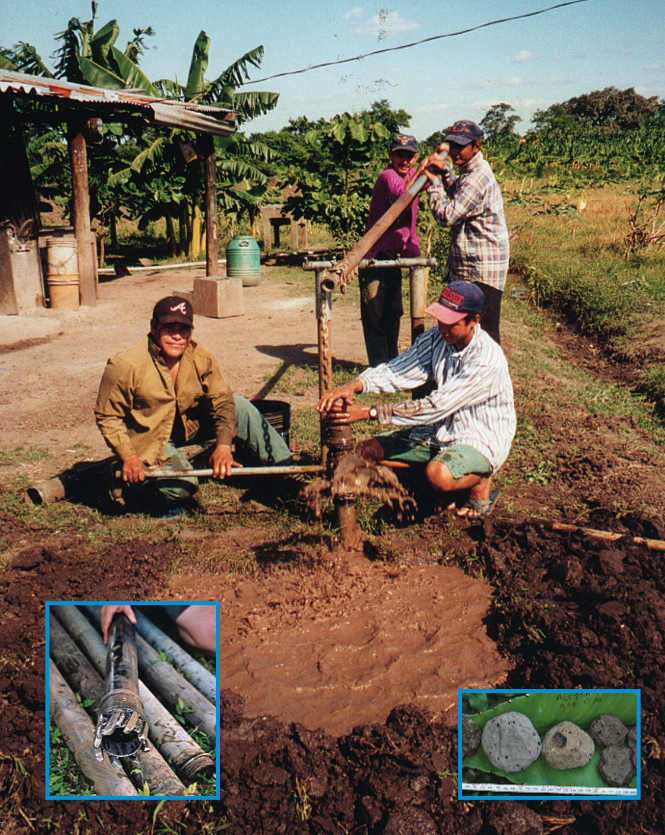Difference between revisions of "Sludging - Rota sludge"
From Akvopedia
m (Rota sludge well drilling moved to Sludging - Rota sludge) |
|
(No difference)
| |
Revision as of 16:04, 21 August 2009
| |
The Rota-sludge method is an adaptation of the Indian hand sludge method. The hardened drill bit is turned 90 degrees during drilling thus chiselling the bottom of the hole. This technology can be used to drill 2-5 inch wells in layers with sand, clay, gravel, tuff stone or weathered rock.
History and social context
Suitable conditions
Can drill 2-5 inch wells to 20 meter.
| Advantages | Disadvantages/limitations |
|---|---|
| - Can drill in hard soil |
Technical specification
Operation
Maintenance
Manufacturing
Cost
In India, the cost of a well made with Rota-sludge is about US$ 30. In Nicaragua, this varies from US$ 80 to US$ 400.
The cost of introduction varies between US$ 5,000-20,000 per project, including hand-on training, drill set and drilling of test wells.
Country experiences
Manuals
- Rota-sludge and stone hammer drilling, Part 1, Drilling manual. Produced by PRACTICA Foundation and ETC Foundation.
- Rota-sludge and stone hammer drilling, Part 2, Production manual. Produced by PRACTICA Foundation and ETC Foundation.
- High quality manuals for Rota-sludge drilling, well digging and other manual drilling and digging methods are available as well from Connect International. They are for free for organizations which are a member of Connect International (cost: 50 Euro per year).
Movies
External links
- www.practicafoundation.nl
- General info on well drilling www.rwsn.org
- nl.youtube.com/watch?v=MvebFHCjCvk
- Organisation http://www.waterforallinternational www.waterforallinternational ]

